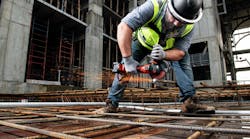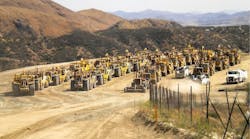Vindication mixed with indignation describes the conversations I've had with asset managers reacting to the recent news that the California Air Resources Board has delayed its draconian emissions requirements.
One manager, who had executed a multi-year program to bring his fleet into compliance, was furious. His fleet operates across the country, so the tango he danced in California was performed in other states, as well. His fleet is ready. But, he says, there are plenty of fleets in California that haven't done a thing. They've been hoping to "fly under the radar," he says, and they've been rewarded for their subterfuge. For this manager, his fleet now is at a potential disadvantage on jobs in that region. His owning and operating costs are going to be higher than noncompliant fleets, and that will be reflected in the bids his firm submits.
Another manager, who had been doing what we've been preaching for more than two years, had been preparing for the inevitable as CARB mandates were expected to roll across the prairies into the other 49 states. His take on the CARB admission was that heads should roll and investigations undertaken.
Even California's local media have (finally) picked up on what the industry has been saying.
A bit of caution, though. Once the anger subsides, the reality is that the boulder has already been pushed over the hill. CARB is only delaying its emissions mandates. Yes, that is a victory that we wanted, but don't fire that emissions-management manager yet. Emissions is one of, if not the key, task for equipment managers over the next several years.
For those equipment managers who have already or have almost converted your machines into an emissions-compliant fleet, you are ahead of the industry. Take advantage.
- Tell your management team about it. A compliant fleet can have the advantage on some jobs, even more so when the owner's include it in the bid specs.
- Tell your community about it. Everybody is bleeding green these days. Be one of the good guys.
- Take a moment to congratulate yourself. You did the right thing; a clean fleet is a positive thing.
- Keep at it.
On the other hand, if yours is one of the fleets that works in an area not yet affected, get on it. Regulations might have been delayed a bit, but they are still coming.
The boulder's on its way down the hill, and when it comes to rest, your fleet will need to be compliant, too.




